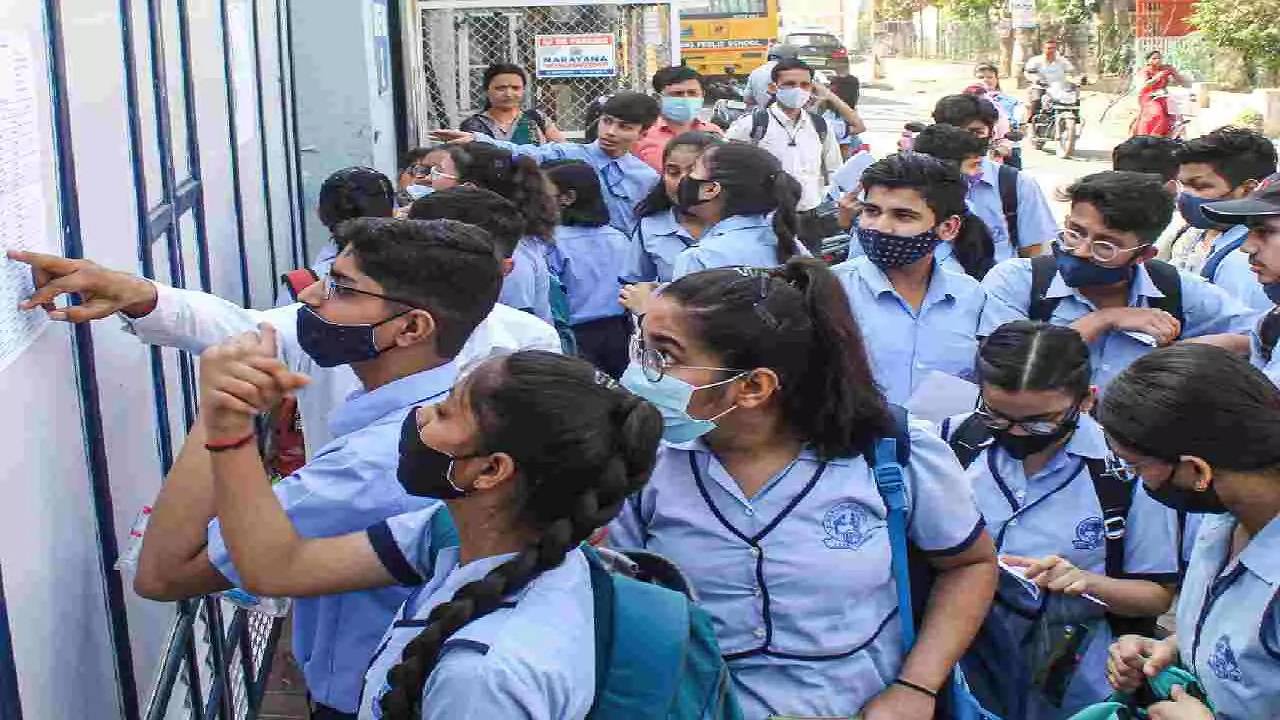Maharashtra Board is all set to introduce the Central Board of Secondary Education (CBSE) curriculum up to Class 12 by 2028. This significant move is part of Maharashtra's larger educational reforms to align with national standards while maintaining its unique socio-cultural identity.
Maharashtra’s School Education Minister, Dada Bhuse, has announced that the state will introduce the Central Board of Secondary Education (CBSE) curriculum up to Class 12 by 2028. This significant move is part of Maharashtra's larger educational reforms to align with national standards while maintaining its unique socio-cultural identity.
Implementation Timeline and Curriculum Expansion
Speaking in both houses of the state legislature, Bhuse revealed that the CBSE curriculum will be phased in gradually, starting with Class 1 in 2025. The new curriculum will be expanded to other grades in subsequent years, with the entire transition expected to be completed by 2028. The timeline for textbook and curriculum implementation is as follows:
- 2025 – Class 1
- 2026 – Classes 2, 3, 4, and 6
- 2027 – Classes 5, 7, 9, and 11
- 2028 – Classes 8, 10, and 12
These changes will be accompanied by a revised assessment system, closely resembling the student-friendly and holistic approach of the CBSE.
Clarification on the Role of MSBSHSE
Following initial confusion, the Maharashtra school education department issued a clarification regarding the continuation of the Maharashtra State Board of Secondary and Higher Secondary Education (MSBSHSE). Minister Bhuse assured that the MSBSHSE will continue to function alongside the new CBSE curriculum and will not be replaced. However, the board will now adopt CBSE's assessment system, which is designed to be more "holistic and student-friendly."
The new system aligns with the National Curriculum Framework (NCF) for school education, ensuring that Maharashtra’s school system remains grounded in its local context while adhering to national standards.
Shifting to Competency-Based Assessment
As part of the larger reforms, Maharashtra will also implement a shift from rote memorization to a competency-based evaluation system. In line with the National Education Policy (NEP) 2020, the state will introduce skill-based, conceptual assessments similar to those used in the CBSE system. These changes aim to foster a deeper understanding of subjects and better prepare students for future challenges.
The state's curriculum framework has been developed after consultations with educational experts and takes into account Maharashtra’s socio-cultural context. Public feedback on the drafts was encouraged through the SCERT website, and inputs were incorporated into the final version, approved by the state-level steering committee on September 9, 2024.
Advantages of CBSE's Assessment System
The integration of CBSE's assessment system brings several key advantages to Maharashtra's education system:
- Concept-Based Learning: Shifting the focus from rote memorization to conceptual understanding will promote critical thinking.
- Continuous and Comprehensive Evaluation (CCE): This method will ensure regular assessments, giving a more accurate reflection of a student’s progress.
- Preparation for Competitive Exams: The CBSE curriculum is aligned with exams like JEE, NEET, and UPSC, providing students with better preparation opportunities.
- Skill Development: CBSE's emphasis on leadership, creativity, and stress management will aid in developing well-rounded individuals.
Teacher Training and Infrastructure Development
To support these sweeping reforms, the Maharashtra government is investing in improving educational infrastructure. This includes upgrades to sanitation facilities, classroom environments, and digital learning tools. Additionally, the state is focusing on extensive teacher training programs to help educators adapt to the new curriculum. Efforts to recruit qualified teachers are also underway.
Recognizing that rural students may face unique challenges in transitioning to the new curriculum, the state has introduced specialized programs to bridge the gap. The “Nipun Maharashtra” initiative, focusing on skill-based learning and digital literacy, is one such program designed to ensure that all students can benefit from the changes.
Maharashtra's shift to a CBSE-based system promises to offer students a more holistic education, enhancing their academic and personal growth. With a focus on skill development, conceptual understanding, and a more flexible assessment system, the state’s educational reforms are poised to help students thrive in an increasingly competitive global environment.
Read More:
Follow Shiksha.com for latest education news in detail on Exam Results, Dates, Admit Cards, & Schedules, Colleges & Universities news related to Admissions & Courses, Board exams, Scholarships, Careers, Education Events, New education policies & Regulations.
To get in touch with Shiksha news team, please write to us at news@shiksha.com

